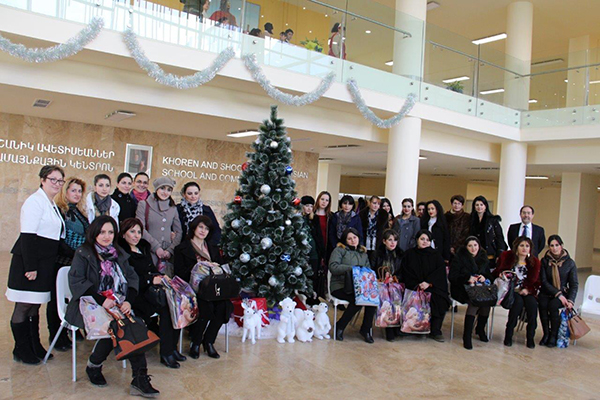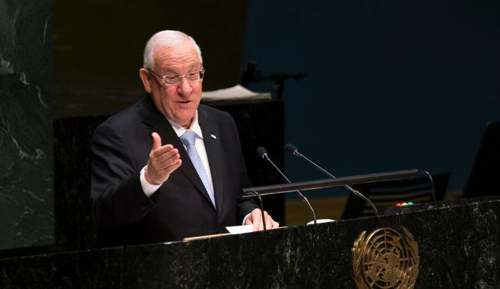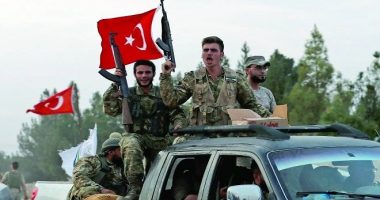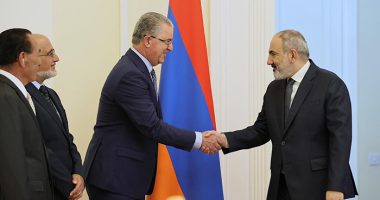By Arthur Salibian, MD
Religious extremism has been in the forefront of the news lately because of the unfolding events in the Middle East and the failure of peace initiatives in the region. Armenians in the Middle East have not been immune from the devastation that has engulfed major cities, towns, and other smaller isolated communities.
Here in the United States, religious extremism is vocal, institutional and mostly peaceful. In contrast, the political ramifications of religious extremism and its influence on American foreign policy have indisputably played a role in the chaotic situation of today’s Middle East.
The path to religious extremism in the United States was laid by the publication of The Fundamentals, a twelve volume series of books written between 1910-1915, delineating the “fundamentals” of the Christian faith. This was an attempt to counter religious “liberalism” that was being promoted and accepted in the United States and Europe. The adherents of the “fundamentals” of the Christian faith, the Fundamentalists, and the movement that followed came to be known as Fundamentalism.
Since its inception, Fundamentalism’s rallying point has been the rejection of Modernism. In the 1930s this led to what is known as the Fundamentalist-Modernist conflict. The antagonism between the “modern” society and the Fundamentalists led to publicized debates in theological schools, reorganization of their curriculums, and the establishment of new seminaries divided along Fundamentalist-Modernist lines. The theological schools in the United States that promote Fundamentalism have had a considerable influence on different denominations and ethnic groups, including Armenians.
Presently, Fundamentalism’s two distinctive features that set it apart from other conservative religious movements in the United States are separatism and dispensationalism. Separatism is defined as “unwilling to dialogue with those who are of a different belief.” End-time dispensationalism teaches that the second coming of Jesus Christ will be a physical event, by which a world-wide kingdom will be established on Earth, geographically centered in Jerusalem after the Battle of Armageddon and the “rapture” of believers. Armenians attending Fundamentalist theological schools have accepted both these concepts and are intent to advance them.
Separatism and dispensationalism are American religious phenomena, foreign to Armenians. Although Armenians around the world have established their own churches, schools and institutions to preserve their language and culture, they have never been separatists in a Fundamentalist sense, refusing to engage those who are of different religions or cultural backgrounds. Also, the ideology of dispensationalism has not been accepted by the Armenian Apostolic Church and the Armenian Catholic Church, nor has it been a dominant issue among Armenian Evangelicals.
Fundamentalist end-time dispensationalism promotes the use of warfare for the physical annihilation of a particular group of people and justifies it using Biblical arguments. Needless to say, Fundamentalists have the prerogative to decide whom the “unbelievers” or “forces of evil” are.
The experience of the Armenian Genocide in the 20th century is a tragedy that draws all Armenians together in modern times. For the Armenian genocide to have a true and lasting meaning in Armenian history, demanding recognition from its perpetrators, Armenians cannot be dispensationalists. An Armenian who understands the calamity of the Armenian Genocide cannot condone the genocide of other peoples. Armenian Fundamentalists on the other hand face a dilemma. If end-time genocide is real and has to be condoned (Armenian dispensationalism), so do other genocides, including the Armenian Genocide. This contradictory position leaves an Armenian dispensationalist with two choices: either ignore the Armenian Genocide or give it a special status among other genocides using Biblical notions; human reasoning won’t allow an Armenian dispensationalist to exceptionalize the Armenian Genocide.
Armenians in the United States who have accepted the tenets of American Fundamentalism consider the Bible, with their particular interpretation of it, to be their history book, ignoring historical facts and criticism of the Bible as a history book. Armenian Fundamentalists disregard Armenian history and are indifferent to tradition because their Biblical “history” always overrides historical realities, including the historical facts of the Armenian people and their traditions.
The dichotomy of Armenian Fundamentalism, and the contradictions implied in the term Armenian Fundamentalist, can be explained by the fact that Armenian Fundamentalists are ahistorical – without concern for history. Put another way, an Armenian Fundamentalist is an ahistorical Armenian who marginalizes Armenian history, history of Armenian Churches, and the Armenian Genocide.
Finally, how do Armenian Fundamentalists view the current events in the Middle East? Do they realize that religious extremism in the form of dispensationalism and the politics of Middle East are inseparable, eventually leading to death? Do Armenian Fundamentalists consider the violence, suffering, and hopelessness of those in the region, including Armenians, an inevitability because of Biblical prophecy?
As Armenians and Christians, ours has always been an affirmation of life and not death.










